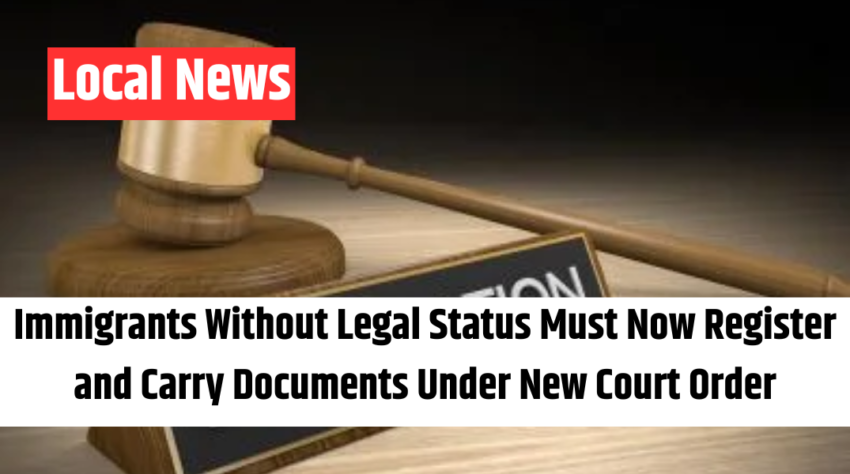Starting Friday, millions of undocumented immigrants in the United States are required to register with the U.S. Department of Homeland Security (DHS), following a decision by a federal judge to allow the new rule to proceed. U.S. District Court Judge Trevor Neil McFadden of the District of Columbia rejected a request from advocacy groups to pause the requirement, ruling that the plaintiffs lacked legal standing to bring the case forward.
Judge McFadden, who was appointed by President Donald Trump, argued that the advocacy organizations had not demonstrated that the new registration requirement would harm them, stating in his order that their claims were “too speculative.”
DHS Secretary Kristi Noem responded positively to the ruling, emphasizing the Trump administration’s stance on undocumented immigrants: “President Trump and I have a clear message for those who are here illegally: leave now, and you may have the chance to return to the United States legally, where you can live the American dream.”
The new rule, initially announced by DHS in February, mandates that immigrants aged 14 and older who lack legal authorization must register with the government and carry documentation verifying their registration. Failure to comply could result in fines up to $5,000 or even prison sentences.
The registration process requires individuals to submit biometric data, including fingerprints, and other personal information through an online application managed by U.S. Citizenship and Immigration Services (USCIS). Once processed, the agency will issue documentation that must be carried at all times.
Also Read – Political Activist Claims “Trumpism Is Cracking” in West Virginia
The Migration Policy Institute estimates that between 2.2 million and 3.2 million immigrants are subject to this requirement. Advocacy groups argue that this rule could lead to racial profiling and the mistaken targeting of U.S. citizens. Additionally, they contend that the Trump administration bypassed proper procedures when implementing the rule.
The registration requirement stems from the Alien Registration Act of 1940, a wartime law that was revived after the September 11 attacks in 2001. The government used the program known as the National Security Entry-Exit Registration System to track individuals from specific countries, though it was dissolved in 2016 after failing to yield terrorism convictions.
The new rule, effective Friday, also covers Canadian visitors who stay in the U.S. for over 30 days, while lawful permanent residents, those with work visas, and individuals in removal proceedings are exempt from the registration requirement.
With the registration rule now in effect, the Trump administration aims to strengthen its immigration enforcement efforts, potentially paving the way for larger deportation initiatives.
